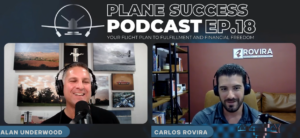In the realm of real estate investing, particularly in commercial properties, the adage “income is king” couldn’t ring truer. The value of a commercial property is intricately tied to its income potential. For value-add investors, this presents a unique and powerful strategy: acquiring underperforming properties, revamping them, and maximizing their income through efficient management. This strategy not only creates wealth but can be a game-changer, especially in markets like Miami where low cap rates demand innovative approaches for substantial returns.
The Core Principle: Income and Commercial Property Value
Commercial property values are fundamentally linked to their income generation. A property yielding higher income is inherently more valuable. As a value-add investor, the opportunity lies in recognizing underperforming properties—those with untapped income potential—and strategically enhancing their revenue streams through effective management and improvements.
The Wealth-Building Potential of Value-Add Investing
The heart of value-add investing lies in identifying properties that are not realizing their full income potential due to various factors such as poor management, lack of modernization, or inefficient operations. By acquiring these properties and implementing strategic changes, such as renovations, operational improvements, and better tenant management, investors have the opportunity to substantially increase the property’s income, subsequently boosting its value.
The Hard Work and Value of Effective Management
Undoubtedly, value-add investing demands dedication and hard work. It involves careful analysis, strategic planning, and hands-on management to implement necessary changes. This is where the role of a proficient property manager becomes integral. A skilled property manager can execute the investor’s vision effectively, overseeing renovations, managing tenant relationships, optimizing operations, and ensuring the efficient running of the property.
The Miami Market and Low Cap Rates: The Impact of Incremental Improvements
In markets like Miami, where cap rates are notably low, even minor enhancements in a property’s income can have a significant impact when it comes to selling. The slightest increase in revenue resulting from improved management, tenant satisfaction, or operational efficiency can lead to substantial returns upon selling the property. Value-add investing in such markets amplifies the potential for wealth creation.
The Resale Potential: Reaping Dividends from Value Enhancement
The success of value-add investing is often most apparent upon resale. By buying underperforming properties, enhancing their income potential through strategic management, and subsequently increasing their value, investors set the stage for a profitable exit strategy. The increased income and improved property value translate into substantial profits upon selling, showcasing the wealth-building potential of this approach.
Conclusion
Value-add investing in commercial properties, particularly in low cap rate markets like Miami, is a compelling wealth-building strategy. The direct correlation between a property’s income and its value provides a unique opportunity for astute investors to acquire underperforming properties, implement effective management strategies, and significantly increase their income, thereby boosting their value and creating wealth. Successful execution of this strategy requires hard work, strategic planning, and above all, the crucial involvement of a capable property manager to turn the investor’s vision into reality.











